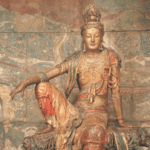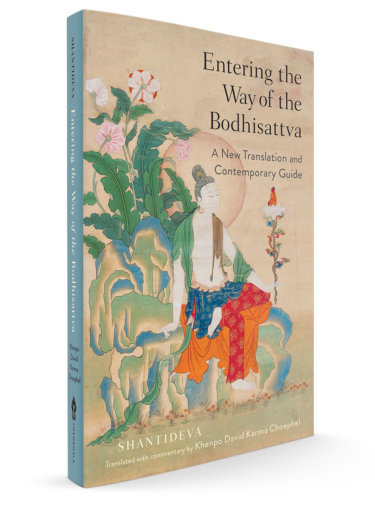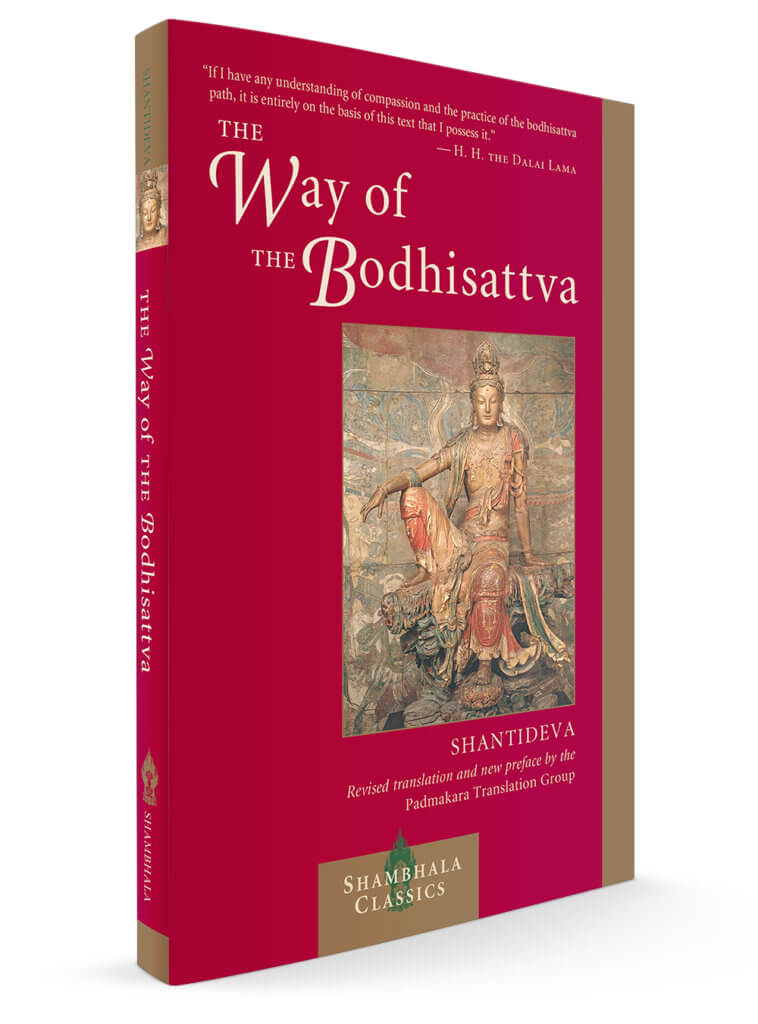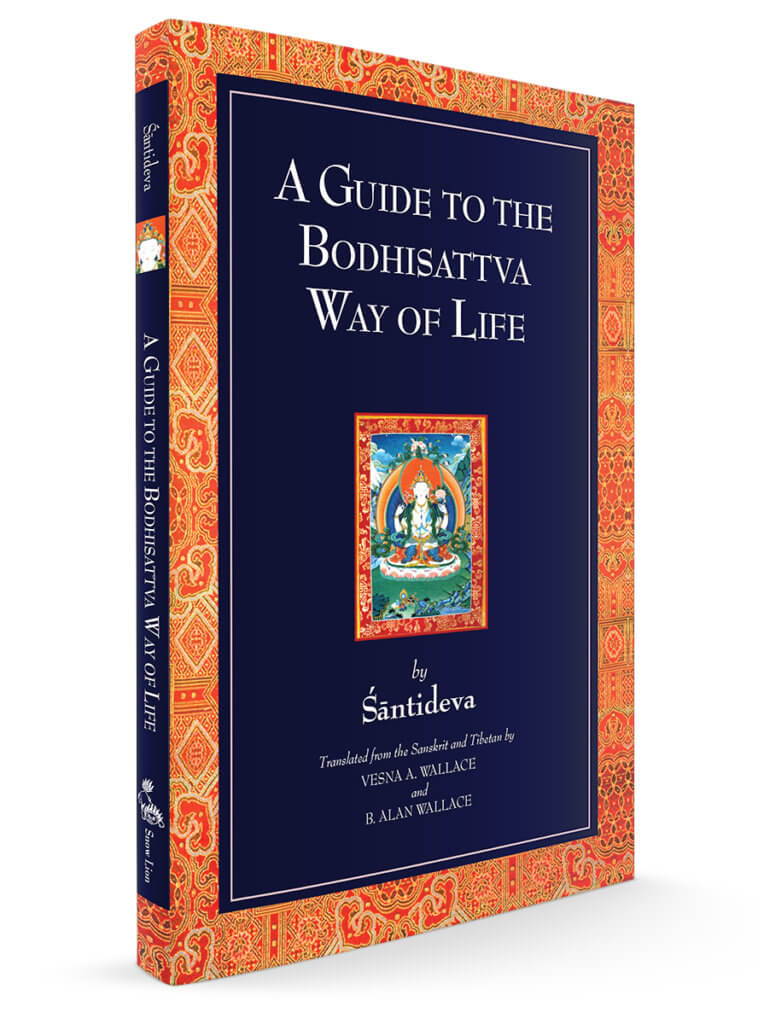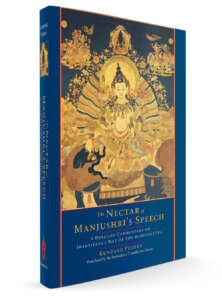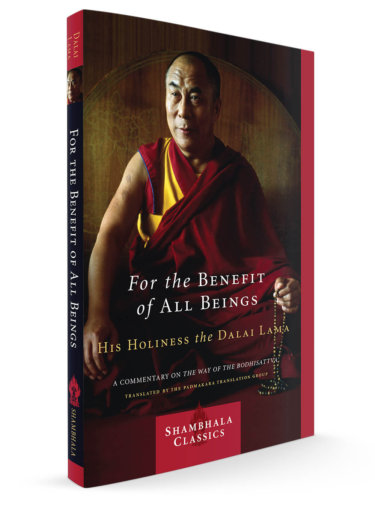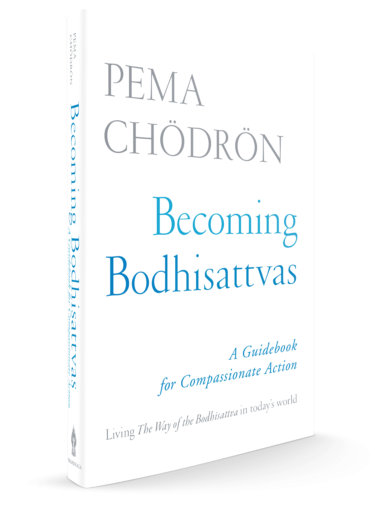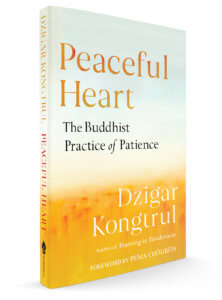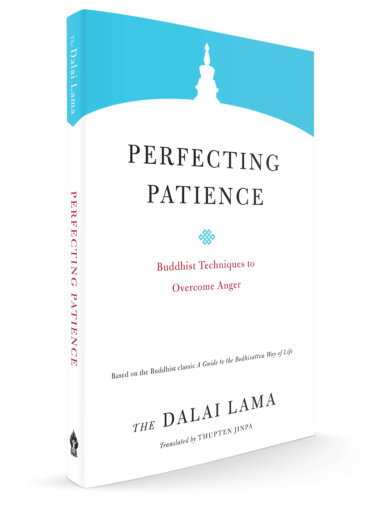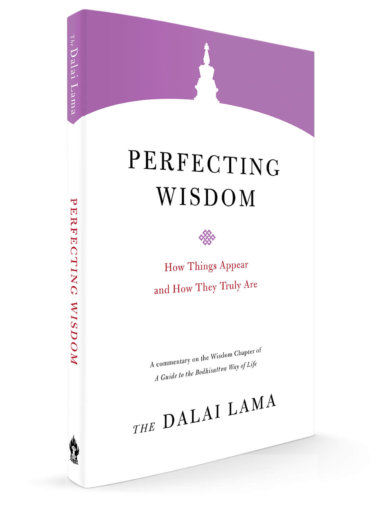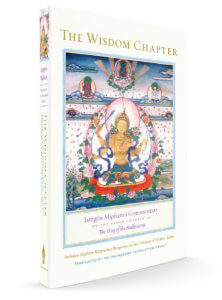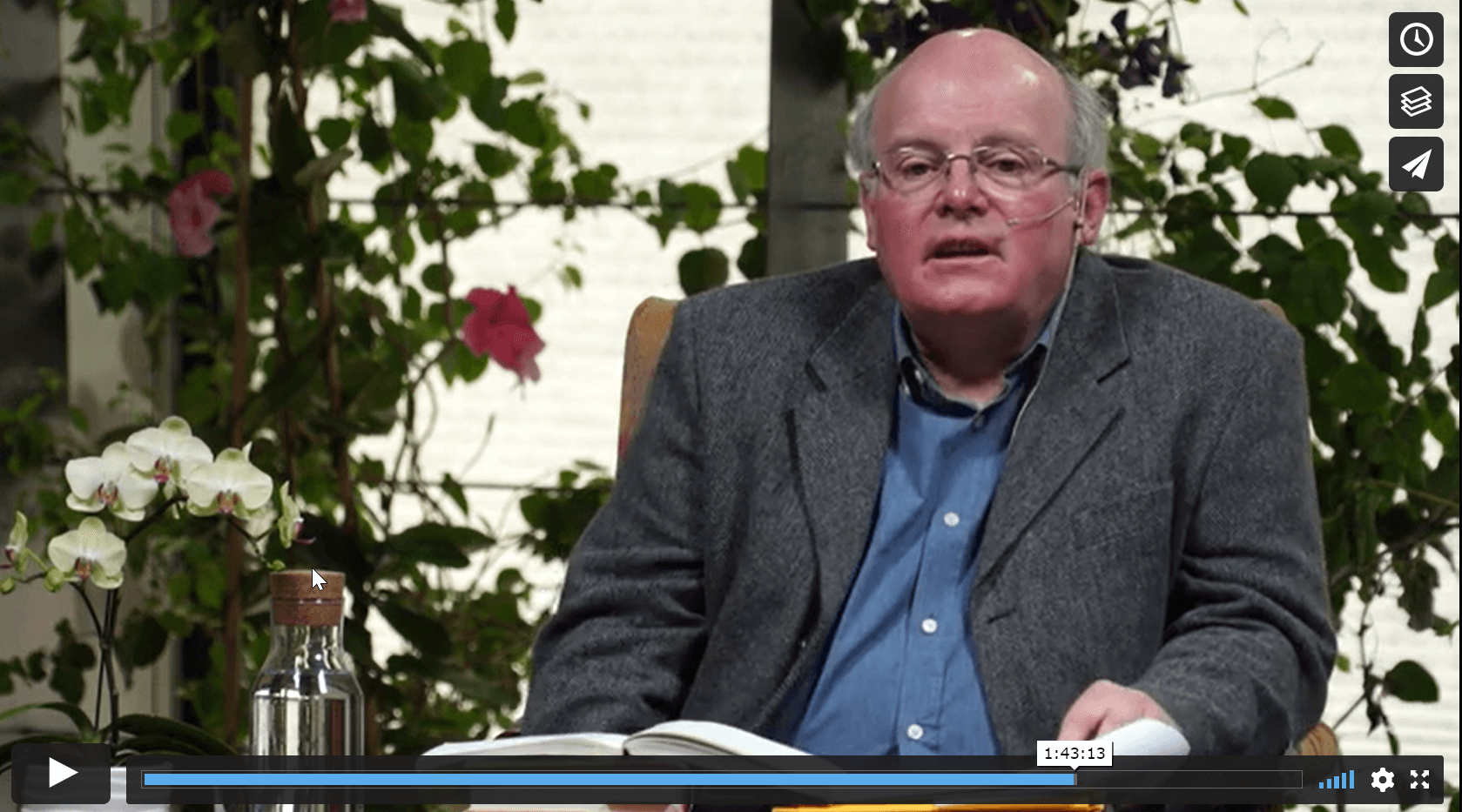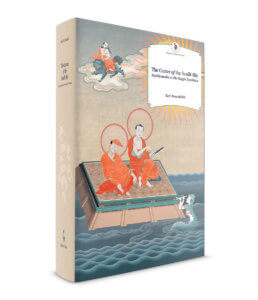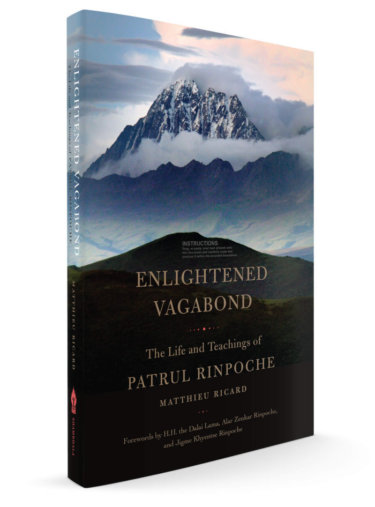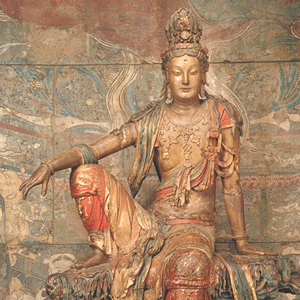
The great nineteenth-century master Patrul Rinpoche, author of The Words of My Perfect Teacher and revered by all Tibetan Buddhists, was known for his wandering ascetic lifestyle, eschewing fame, generous offerings, and all but the most meager possessions. However, wherever he went throughout his peripatetic life, he carried with him a copy of Shantideva's Bodhicharyavatara, which we know now as The Way of the Bodhisattva or A Guide to the Bodhisattva's Way of Life. Renowned for his encyclopedic knowledge and ability to transmit the wisdom of Prajnaparamita and Dzogchen, Patrul Rinpoche spent his life constantly teaching this text, encouraging students to read it and study it over and over again-hundreds of times. Why this focus from him and millions of masters and practitioners before and after?
Below is a guide to help practitioners answer this question for themselves and go deeper and deeper into this essential work. For a bit of history, you can also see our post on its story.
Jump To: Translations | Commentaries | Chapter-Specific Works | Additional Works | Resources
Translations of the Bodhicharyavatara
Entering the Way of the Bodhisattva: A New Translation and Contemporary Guide
This modern translation of an essential Mahayana Buddhist text captures the meaning and musicality of Shantideva's original verse and a commentary to its profound depths by the translator David Karma Choephel , one of the very few western Khenpos.
This is a fresh translation to, and commentary on the Bodhicaryavatara or Entering the Way of the Bodhisattva, perhaps the most renowned and thorough articulation of the bodhisattva path. Written by the eighth-century Indian monk Shantideva, Entering the Way of the Bodhisattva is a guide to becoming a bodhisattva, someone who is dedicated to achieving enlightenment in order to benefit all beings.
After the full translation, Khenpo David Karma Choephel gives his own commentary, explaining the key points of each chapter with clarity and wisdom. Combining a uniquely poetic translation with detailed analysis, this book is a comprehensive guide to developing oneself in service of others. Teachings that have been at the heart of Mahayana practice for centuries are given new life, and the supporting commentary makes the text accessible and applicable to practitioners. Readers interested in the bodhisattva path will find this a comprehensive resource filled with captivating verse and incisive interpretations.
Paperback | eBook
$21.95 - Paperback
Shambhala Library Hardcover | Paperback | eBook | MP3 audio download.
$24.95 - Hardcover
The Way of the Bodhisattva
By far the best-selling translation is from the Padmakara Translation Group entitled The Way of the Bodhisattva. This was translated with reference primarily to the Tibetan and following the commentary of Khenpo Kunpel, the nineteenth-century Nyingma master renowned for his spiritual realization and instrumental in the preservation of the oral traditions and teachings of his tradition.
This edition also includes a ten-page biography of Shantideva as well as selections on tonglen, or exchanging oneself with others, from Khenpo Kunpel's commentary.
A Guide to the Bodhisattva's Way of Life:
Another excellent translation is from Alan and Vesna Wallace, translated as A Guide to the Bodhisattva's Way of Life. The Wallace's translation is based both on Sanskrit and Tibetan sources and was guided by Tibetan commentaries, notably of Gyaltsap-Je.
Another version to note is Kate Crosby and Andrew Skilton's translation from Oxford University Press. All these translations expose different facets of the text, while the translators' introductions each illuminate it in different ways and are well-worth seeking out.
Paperback | eBook
$16.95 - Paperback
Commentaries
Paperback | eBook
$39.95 - Paperback
The Nectar of Manjusri's Speech: A Detailed Commentary on Shantideva's Way of the Bodhisattva
by Khenpo Kunzang Pelden, based on Patrul Rinpoche's teachings
While Patrul Rinpoche did not compose a work on the Way of the Bodhisattva, he taught it constantly, over one hundred times from beginning to end. It had fallen into disuse outside a few monastic centers, and it is thanks to Patrul Rinpoche this text became integral to all the schools of Tibetan Buddhism. Luckily for us, one of his most dedicated students, Khenpo Kunzang Pelden or Khenpo Kunpel, compiled these teachings he received from Patrul Rinpoche and composed The Nectar of Manjusri's Speech: A Detailed Commentary on Shantideva's Way of the Bodhisattva.
Paperback | eBook | Pocket Edition | mp3 Audio
$21.95 - Paperback
For the Benefit of All Beings: A Commentary on The Way of the Bodhisattva
by the Dalai Lama and the Padmakara Translation Group
Based on teachings His Holiness gave in Dordogne, France in 1991, For the Benefit of All Beings, translated by the Padmakara Translation Group, gives an overview and commentary on each chapter of the text, distilling the key messages on the benefits of bodhichitta, offering and purification, carefulness, attentiveness, patience, endeavor, concentration, wisdom, and dedication. His Holiness said,
"I received the transmission of the Bodhicharyavatara from Tenzin Gyaltsen, the Kunu Rinpoche, who received it himself from a disciple of Dza Patrul Rinpoche, now regarded as one of the principal spiritual heirs of this teaching. It is said that when Patrul Rinpoche explained this text, auspicious signs would occur, such as the blossoming of yellow flowers, remarkable for the great number of their petals. I feel very fortunate that I am in turn able to give a commentary on this great classic of Buddhist literature."
Paperback | eBook | CD | Digital Download
$29.95 - Paperback
Becoming Bodhisattvas: A Guidebook for Compassionate Action
by Pema Chōdrōn
In Becoming Bodhisattvas: A Guide to Compassionate Action (previously published as No Time to Lose: A Timely Guide to the Way of the Bodhisattva), Ani Pema Chödrön talks about her relationship with the text and said it was not always easy:
"Some people fall in love with The Way of the Bodhisattva the first time they read it, but I wasn't one of them. Truthfully, without my admiration for Patrul Rinpoche, I wouldn't have pursued it. Yet once I actually started grappling with its content, the text shook me out of a deep-seated complacency, and I came to appreciate the urgency and relevance of these teachings. With Shantideva's guidance, I realized that ordinary people like us can make a difference in a world desperately in need of help."
Giving Our Best: A Retreat with Pema Chodron on Practicing the Way of the Bodhisattva
by Pema Chödrön
Pema Chödrön's teachings on this text are also available in the form of Giving Our Best: A Retreat with Pema Chödrön on Practicing the Way of the Bodhisattva. This is a rare and wonderful presentation from a live teaching that brings the teachings into real life, present-day situations.
Chapter-Specific Commentaries
We have two books on the Patience or fourth chapter and three on the Wisdom, or ninth chapter.
Paperback | eBook | Audiobook
$16.95 - Paperback
Peaceful Heart: The Buddhist Practice of Patience
An introductory guide to cultivating patience based on The Way of the Bodhisattva's Fourth Chapter on patience, and opening your heart to difficult circumstances from leading Buddhist teacher, Dzigar Kongtrul Rinpoche.
Also available as an audiobook
Dzigar Kongtrul Rinpoche talks about his book at the Jaipur Literature Festival
Paperback | eBook
$18.95 - Paperback
Perfecting Patience: Buddhist Techniques to Overcome Anger
His Holiness the Dalai Lama also has a book devoted to Shantideva's chapter on patience. Here His Holiness relates that:
"Shantideva observes that from one point of view, as pointed out earlier, when the other person inflicts harm or injury upon one, that person is accumulating negative karma. However, if one examines this carefully, one will see that because of that very act, one is given the opportunity to practice patience and tolerance. So from our point of view it is an opportune moment, and we should therefore feel grateful toward the person who is giving us this opportunity. Seen in this way, what has happened is that this event has given another an opportunity to accumulate negative karma, but has also given us an opportunity to create positive karma by practicing patience. So why should we respond to this in a totally perverted way, by being angry when someone inflicts harm on us, instead of feeling grateful for the opportunity?"
Paperback | eBook
$16.95 - Paperback
Perfecting Wisdom: How Things Appear and How They Truly Are
by The Dalai Lama
The ninth chapter of the Bodhicaryavatara, on wisdom, is considered one of the most profound and requires deep study and practice to truly understand. In this work, His Holiness the Dalai Lama focuses on this chapter and its application. Here, His Holiness goes deep into the subjects of the methods needed to cultivate wisdom, what identitylessness means, and how the notion of true existence is refuted.
The Wisdom Chapter
by Mipham Rinpoche, based on teachings he received from Patrul Rinpoche
Patrul Rinpoche, also imparted teachings to Mipham Rinpoche, who based his understanding on these when he wrote his commentary on the famous (and famously challenging) ninth chapter of The Way of the Bodhisattva, now translated as The Wisdom Chapter.
Hardcover | eBook
$78.00 - Hardcover
The Center of the Sunlit Sky: Madhyamaka in the Kagyu Tradition
by Karl Brunnholzl
Another in-depth look at this text - in particular the ninth chapter - is Pawo Rinpoche's explanation included in The Center of the Sunlit Sky. In just under 200 pages of this work, in addition to being a commentary on Shantideva's work generally, Pawo Rinpoche provides several long accounts on such topics as Madhyamaka in general, the distinction between different branches of Madhyamaka philosophy, prajña, emptiness, conventional and ultimate reality, and the nature and qualities of Buddhahood. It describes the four major Buddhist philosophical systems and how the Mahayana represents the words of the Buddha. In addressing the issue of so-called Shentong-Madhyamaka, he also elaborates on the lineage of vast activity and shows that it is not the same as mind only.
This is available in both hardcover and eBook (see Additional Formats).
Additional Works on The Way of the Bodhisattva
Paperback | eBook
$27.95 - Paperback
Enlightened Vagabond: The Life and Teachings of Patrul Rinpoche
by Matthieu Ricard
2017 also saw the release of Enlightened Vagabond, the collected stories about Patrul Rinpoche who led a revival of the focus and immersion of students on this text. The stories often revolve around him teaching on this text which he did countless times. Here is an example:
Paperback | eBook
$22.95 - Paperback
Destroying Mara Forever: Buddhist Ethics Essays in Honor of Damien Keown
Another work that should be mentioned is Destroying Mara Forever, a collection of essays on Buddhist ethics including three pieces focused on this text.
The first is by Barbara Clayton entitled Santideva, Virtue, and Consequentialism.
The second, by Paul Williams, is entitled Is Buddhist Ethics Virtue Ethics? The final piece that is Shantideva-specific is Daniel Cozort's Suffering Made Sufferable: Santideva, Dzongkaba, and Modern Therapeutic Approaches to Suffering's Silver Lining. These three pieces explore different ethical implications and significance of Shantideva's work
Additional Resources
Please visit The Way of the Bodhisattva: An Immersive Workshop for more on Shantideva's work, or sign up for our Tibetan Buddhist email list for more information.

